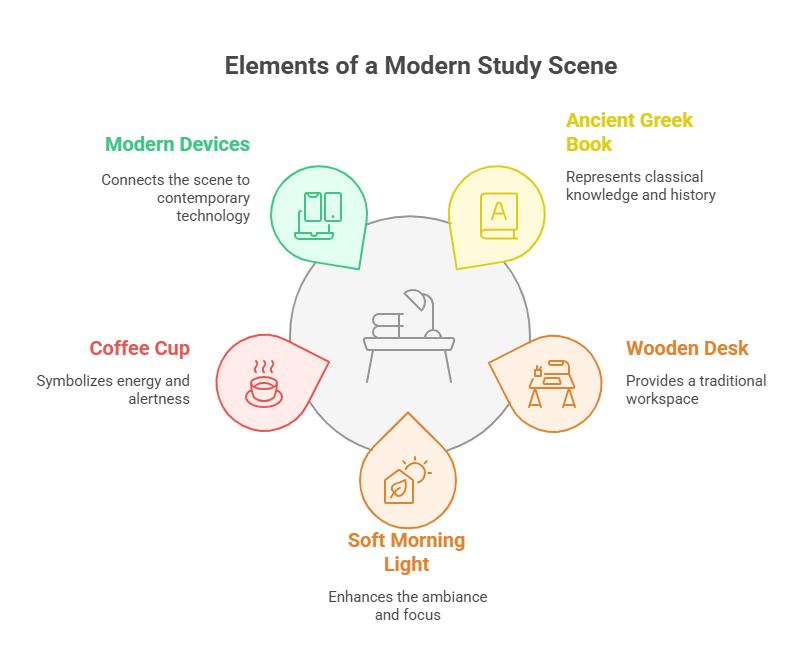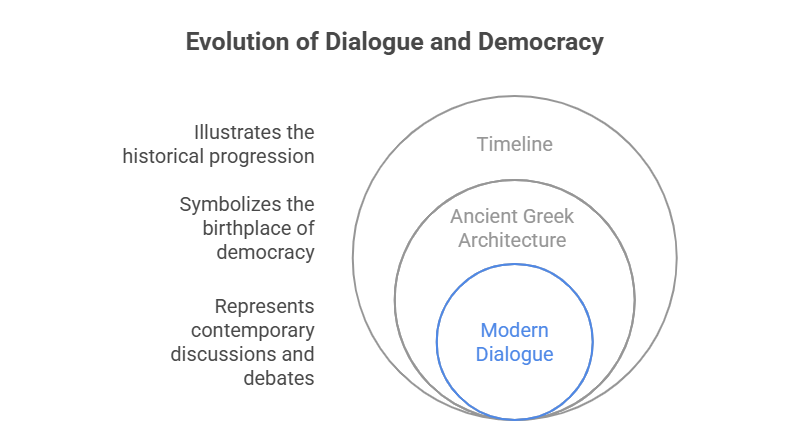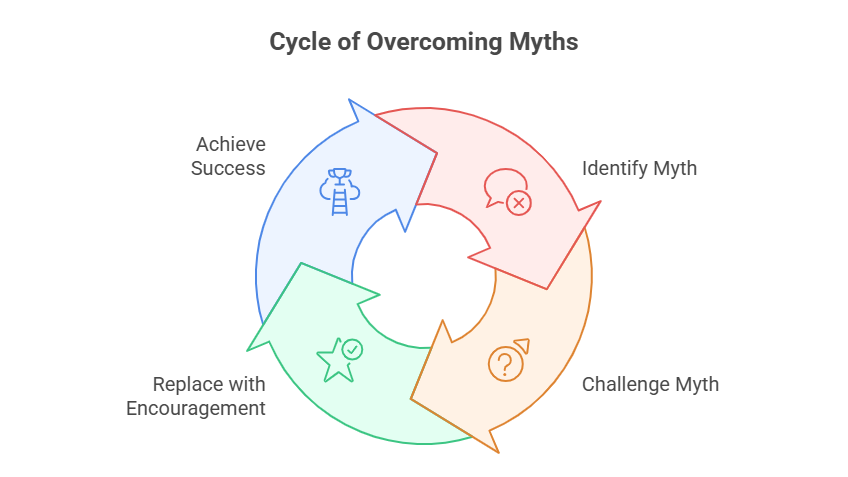How to understand Ancient Greek relevance without feeling overwhelmed or lost? Many learners—whether students, teachers, or lifelong readers—struggle to see how a language from 2,000 years ago still fits into today’s world.
This topic matters because too often, Ancient Greek is treated like a museum piece—complex, dusty, and out of reach. But it shouldn’t be. Its ideas shape the way we think, speak, and even vote. Yet most resources are either too technical or too shallow to be useful.
In this article, I’ll show you how Ancient Greek still matters—and how you can connect with it in simple, daily ways. As the founder of LatinPerDiem, I’ve spent over 30 years helping people learn classical languages in small, clear steps. You don’t need to be a scholar. You just need a few minutes and the right guide. Let’s start there.
Key Takeaways
- Ancient Greek still shapes modern life — from law and science to everyday English words.
- Greek thinkers like Socrates and Aristotle continue to influence how we teach, lead, and solve problems.
- Democracy, medicine, and math all trace their roots to Ancient Greek texts and ideas.
- LatinPerDiem helps you learn Greek in small, clear lessons—even if you’re just starting.
- Greek mythology and language appear in pop culture, brand names, and religious texts.
- You don’t need hours to learn—just a few minutes a day builds real understanding.
- Common myths are wrong: Ancient Greek isn’t too hard, and it’s far from useless.
What Is Ancient Greek Relevance and Why Does It Still Matter?
Ancient Greek relevance means how ideas, words, and systems from Ancient Greece still shape modern life. From philosophy and politics to medicine and religion, Greek thought continues to guide how we think and live today. It’s not just history—it’s part of daily knowledge.
Facts That Prove Ancient Greek Still Matters
The relevance of Ancient Greek today isn’t just an academic opinion—it’s backed by real data, expert insight, and everyday usage in education, science, and culture.
Key Data Points
| Area of Influence | Evidence or Source | Real-World Relevance |
| Vocabulary | Over 60% of English academic terms come from Ancient Greek. (Oxford Dictionary) | Terms like biology, democracy, ethics, and philosophy have Greek roots. |
| Science & Medicine | Nearly 95% of medical terminology stems from Greek and Latin. (AMA Style Guide) | Terms like cardiology, neurology, and diagnosis are based on Greek. |
| Bible Study | Over 1.5 billion people use translations based on the Greek New Testament. (Wycliffe Bible Translators) | Knowing Koine Greek gives direct access to original scriptural meaning. |
| Education | Classical education models using Greek are growing in the U.S. and UK. (Circe Institute, Classical Education Survey 2022) | Homeschools and private schools prioritize Ancient Greek alongside Latin. |
| Higher Ed Curriculum | Courses in Ancient Greek are still taught in over 150 U.S. colleges. (Society for Classical Studies) | Students use it for theology, philosophy, linguistics, and law. |
What Is Ancient Greek Relevance?
Ancient Greek relevance means how ideas, words, and ways of thinking from Ancient Greece still affect our world today. You’ll see its influence in modern education, language, philosophy, politics, and even religion. Words like democracy, logic, and ethics all come from Greek roots.
At LatinPerDiem, we make these ideas easier to understand with short, clear lessons that fit your daily life. Whether you’re reading the New Testament in Greek, learning how Greek grammar works, or exploring key thinkers like Socrates and Aristotle, we help bring the past into focus—without pressure.
Understanding Ancient Greek isn’t just for scholars. It’s a way to see the world more clearly and connect with the foundations of modern thought—one word at a time.
Why Ancient Greek Still Matters Today
Greek Philosophy That Shaped the World
Greek philosophy still guides how we ask questions, make decisions, and teach. Socrates’ method—asking thoughtful questions to find truth—is used in schools, courtrooms, and team meetings worldwide. Aristotle’s ethics still influence modern ideas of justice, leadership, and personal responsibility.
At LatinPerDiem, we break these complex thinkers into simple, clear videos. You don’t need a philosophy degree to understand Plato or Aristotle. With just a few minutes a day, you can grasp ideas that still shape how we think and live. That’s the real power of Ancient Greek thought—it’s timeless and practical.
Ancient Democracy: The Blueprint for Modern Politics
Democracy began in Athens, where citizens debated laws and made decisions together. That basic idea—government by the people—inspired later political systems, including those in the U.S. and Europe. Terms like democracy all come from Greek.
Even today, students of political science study Greek texts to understand the roots of voting, law, and public debate. Ancient Greek isn’t just part of history—it’s part of how we govern today.
Ancient Greek Contributions to Science and Culture
The Ancient Greeks laid the groundwork for math, medicine, and astronomy. Pythagoras taught math that’s still used in schools. Hippocrates, often called the father of medicine, set ethical rules doctors follow even now. Greek culture also gave us architecture, theater, and storytelling that still influence art, movies, and public buildings around the world.
Legacy of the Greek Language in English & Theology
More than 60% of academic English comes from Ancient Greek. Words like philosophy, analysis, and dialogue have Greek roots. Knowing Greek helps students, teachers, and readers understand these words more deeply.
In theology, Greek holds a special place. The New Testament was written in Koine Greek, the common language of its time. At LatinPerDiem, our Greek New Testament readings help explain the original meanings behind key words like logos (word) or agape (love).
This connection between language and faith gives learners new insight into scripture, doctrine, and worship—not through guesswork, but through the words themselves.
How Ancient Greek Influences Modern Society
In Education & Liberal Arts
At LatinPerDiem, our mission is to make Ancient Greek simple, accessible, and practical—even for beginners. We believe anyone can learn deep ideas one small step at a time.
Much of today’s liberal arts education comes straight from Ancient Greece. Subjects like grammar, logic, and rhetoric were first taught by Greek philosophers to help people think clearly, speak well, and live wisely. These same tools are still taught in classical schools, homeschool programs, and universities.
Learning Ancient Greek isn’t just about reading old books. It’s about training your mind to reason and express ideas with precision—skills that apply in every part of life, from writing essays to making decisions.
Greek Mythology in Everyday Life
You don’t have to open a textbook to see Greek myths—they’re everywhere. Nike, the sports brand, is named after the Greek goddess of victory. In the movie Oppenheimer, the myth of Prometheus is used to explain the burden of knowledge.
At LatinPerDiem, we use short video lessons to show how these stories connect to Greek language and thought. Myths aren’t just legends—they help teach vocabulary, culture, and timeless human struggles. That’s why they still speak to us today.
Practical Tips to Learn & Apply Ancient Greek
Learning Ancient Greek doesn’t need to be hard—or time-consuming. One easy habit? Watch a LatinPerDiem video each morning with your coffee or tea. Just 5 minutes a day can make a big difference.
Start with categories that fit your interest:
- NT Greek – read and hear the New Testament in the original words
- Grammar Nuggets – short clips that explain one grammar point at a time
- Greek Readings – guided walkthroughs of real Greek texts
The key isn’t cramming. It’s showing up each day. Repetition builds memory. Seeing Greek words and forms often helps your brain connect patterns without stress. Just one sentence a day adds up—like watering a plant, not flooding it.
Common Myths About Ancient Greek
Myth 1: “It’s too hard.”
Many people think Ancient Greek is only for scholars. But with LatinPerDiem’s short, easy-to-follow videos, you can learn step-by-step—no background required. We break things down clearly so you can understand and enjoy the process.
Myth 2: “It’s not useful.”
In truth, Ancient Greek still shapes today’s world. You’ll find its influence in law, medicine, theology, and academic language. Words like ethics, diagnosis, and logic all come from Greek. Understanding Greek helps you connect with the roots of modern thought—in ways that still matter every day.
Real-World Case Studies & Examples
It was a truly rewarding experience reading Cicero’s Pro Archia with Professor Noe. He was very patient in guiding us through the text and never forgot to point out the style, mode, and sometimes musicality of Cicero’s Latin. What I learned from him served me well in my own study of Cicero for my graduate Latin reading exam. Shawn D.
Dr Noe’s short tutorials provide very clear and succinct explanations of grammar and vocabulary which, being largely self taught, I find extremely useful. The wide range of material you provide allows me to sample authors and subjects I would not otherwise meet. For example the Adagiorum Maxime Vulgarium Thesaurus and a treatise on toothache! The coverage of more standard fare is also excellent. I generally prefer the classical texts but the fact that you provide snippets of lesser known works is an outstanding feature of your site. Thank you and long may you thrive! John G.
LatinPerDiem offers structured courses and daily lessons that have helped learners progress effectively.
Conclusion
Ancient Greek still speaks today. It shapes our words, ideas, laws, and beliefs. With LatinPerDiem, you don’t need hours or degrees—just a few minutes a day.
Frequently Asked Questions
Is Ancient Greek still useful today?
Yes. Ancient Greek continues to shape law, medicine, theology, and academic language. Words like diagnosis, logic, and ethics all come from Greek. It also sharpens your critical thinking, making it valuable in education and daily life.
Can I learn Ancient Greek on my own?
Absolutely. With LatinPerDiem’s free videos, anyone can start learning at home. Our lessons are short, clear, and made for beginners. All you need is a few minutes a day—no textbook or classroom required.
What’s the difference between Classical Greek and New Testament Greek?
Classical Greek is older and more complex, found in writers like Plato and Aristotle. Koine Greek, used in the New Testament, is simpler and easier to start with. At LatinPerDiem, we teach both, but Koine is great for beginners.
Is Ancient Greek still spoken anywhere in the world?
Ancient Greek is not spoken as a daily language today, but it’s read, studied, and used worldwide—especially in theology, education, and classical studies. Many languages and modern ideas still carry its influence.
How long does it take to learn Ancient Greek basics?
With daily 5-minute practice, most learners start understanding basic grammar and vocabulary in a few weeks. Our YouTube playlists, like NT Greek and Grammar Nuggets, help build skills one small step at a time—no pressure, just rhythm.




